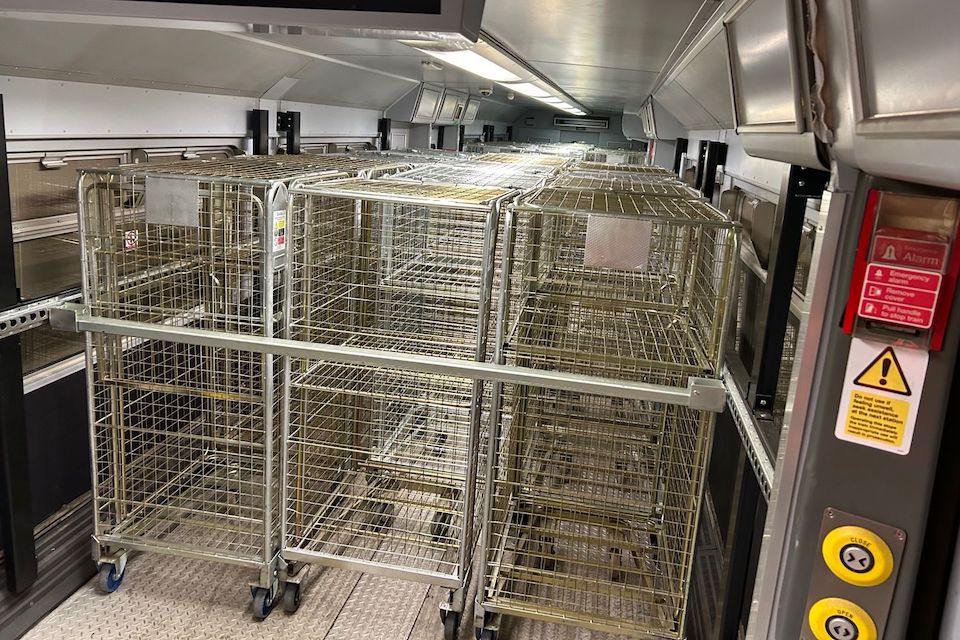The UK’s express logistics market by rail may be on the brink of a significant expansion. Varamis Rail, a relatively new player in the industry, has rapidly increased its operations. The company recently acquired its fourth train within just over a year of operation. Industry insiders are questioning whether the market for high-speed rail logistics is about to explode into life.
Varamis Rail, headquartered in the historic Doncaster Railway Works, has been making waves with its overnight express logistics service. Currently connecting Birmingham and Glasgow, the operator has big ambitions. Their innovative approach involves utilising two Class 321 Swift Electric Multiple Units (EMUs) to transform rail-born parcel traffic. They hope that will become a common sight on the UK network. Make that three units. No, actually, now it’s four. It’s difficult to keep up.
Ambition to decarbonise the UK
The trains, streamlined and stripped of passenger luxuries – like seats, and everything else for that matter – operate four cars in length, providing a dedicated space for BRUTEs. The ubiquitous British Rail Universal Trolley Equipment, BRUTEs are like supermarket shopping trolleys on steroids. They are the unsung heroes of the British railway network and are crucial in making the Varamis operation a smooth forerunner of what may become a new trend in express logistics.

Varamis Rail’s ambition is to decarbonise the UK, reduce congestion, and minimise pollution. That aligns with the growing demand for sustainable logistics solutions. The company’s service operates between a terminal on the West Coast Main Line outside Glasgow and its own facility at Birmingham International Station, strategically located adjacent to Birmingham Airport and the National Exhibition Centre complex. Of course, it is an all-electric service.
Un-British haste to speed up the rebirth of parcel traffic
The overnight express logistics service, completing the journey in just under five hours each way, is the fastest service on the Anglo-Scottish route. Well, the non-stop routing helps push up the average speed. Nevertheless, this makes it an attractive solution for environmentally aware business customers in the express logistics sector. It proves the concept for a whole raft of would-be operators eyeing a slice of the action.
As has been often reported, the Varamis model is not the only way to speed up the rebirth of parcel traffic. InterCity Railfreight (ICRF) has been using spare capacity on scheduled passenger trains for several years. The Royal Mail has been in and out of the rail market for generations. Others are waiting in the wings. Even so, Varamis has demonstrated rapid growth that sets it apart. The company’s success has led industry observers to speculate whether this heralds a broader trend towards increased reliance on rail for fast and sustainable logistics.
From a single four-car electric multiple unit to a fleet of four, Varamis has made the sparks fly in a very un-British haste. If the UK really is on the cusp of a boom in high-speed rail logistics, they intend to be doing the special delivery.